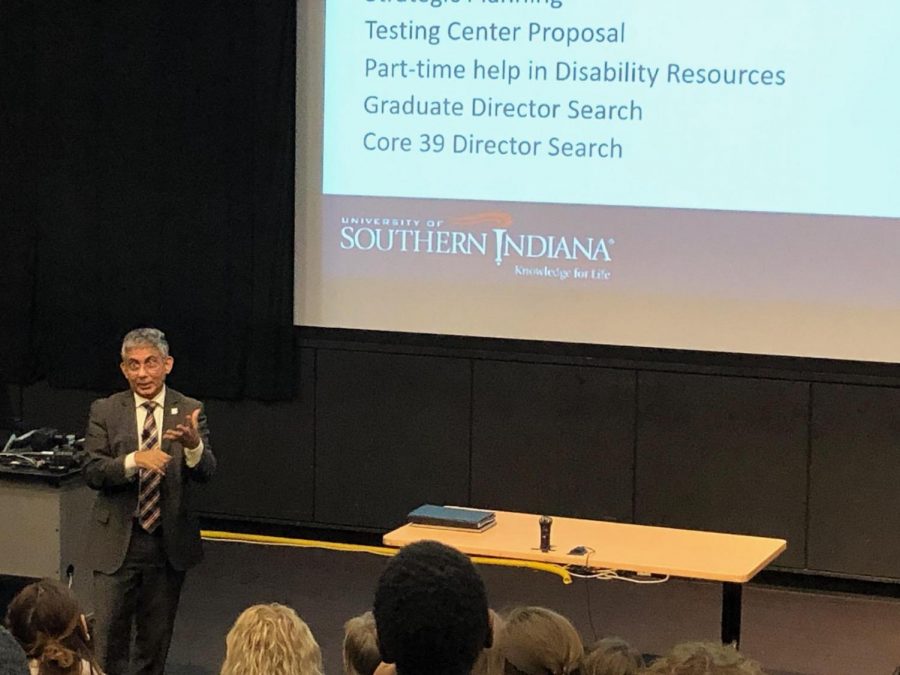Faculty Senate pleased with town halls
Provost Khayum speaks at town hall Feb. 12.
February 25, 2020
Kenny Purcell, chair of the Faculty Senate, said that the relationship between administration and faculty has improved in the last year, but with the financial difficulties of the university is in and salaries not increasing, some tension will exist.
Faculty and staff members were invited to take a survey to express concerns about the university to be presented at the university meeting Aug. 13 before the academic school year started.
Many employees expressed frustration with the lack of transparency of a shared vision or any strategy to overcome the current challenges regarding low enrollment according to the submitted questions.
“One of the nasty things we discovered with the survey is there was a lot of misinformation, which is far more dangerous than no information,” Purcell said, referring to the submitted questions from faculty and staff.
He said he feels faculty are satisfied with the results of the town halls so far because they allow a clear line of communication.
“I know my fellow senators have been happy with the town halls,” Purcell said.
Provost Mohammed Khayum addressed a number of concerns in a previous town hall Feb. 12.
Khayum addressed a joke he made at the Jan. 29 town hall where he questioned whether or not the university would still exist in five years. The crowd responded to this with a collective gasp.
Khayum said he “didn’t think,” when he made the joke.
“I am fully confident we will exist,” he said.
He also confirmed there hasn’t been any conversation about ending low-attendance programs to try and cut costs.
Khayum said not all faculty compensation should be equal because the market value drives compensation, referring to how not all faculty members get paid the same amount because they teach different subjects.
“If we wanted to be rich, we wouldn’t be here,” he said.
Khayum took the time to talk about international students. The university has 196 enrolled international students, representing 51 countries.
Over 70% of students were recruited due to international recruitment initiatives. This was in response to concern over increasing costs of travel to recruit international students.
He also said the university won’t be sending anyone to China in the near future because of the coronavirus outbreak. No USI students are currently studying abroad in the country.
In the town hall from Jan. 29, Steve Bridges, vice president of finance and administration, said the university is affordable if a student’s household income is $75,000, but is one of the most expensive in the state if household income is lower. This means USI is more affordable compared to other universities if students are from wealthier families than if they are from poorer families.
Bridges said the university doesn’t provide enough need-based aid to make the school more affordable for students from lower income families.
Rochon will give his state of the university address in April to talk more about the budget concerns.
Rochon announced that the university would run on a $1.3 million deficit because of the decrease in the number of credit hours students are taking during the university meeting at the beginning of the year.
Raising salaries by 1% would have created a $2 million deficit, according to Rochon, which is one of the reasons faculty and staff didn’t receive raises
The next town hall will be 3 p.m. March 11 in Forum 1 featuring David Bower, vice president for development and president of USI Foundation. This will be during spring break.








